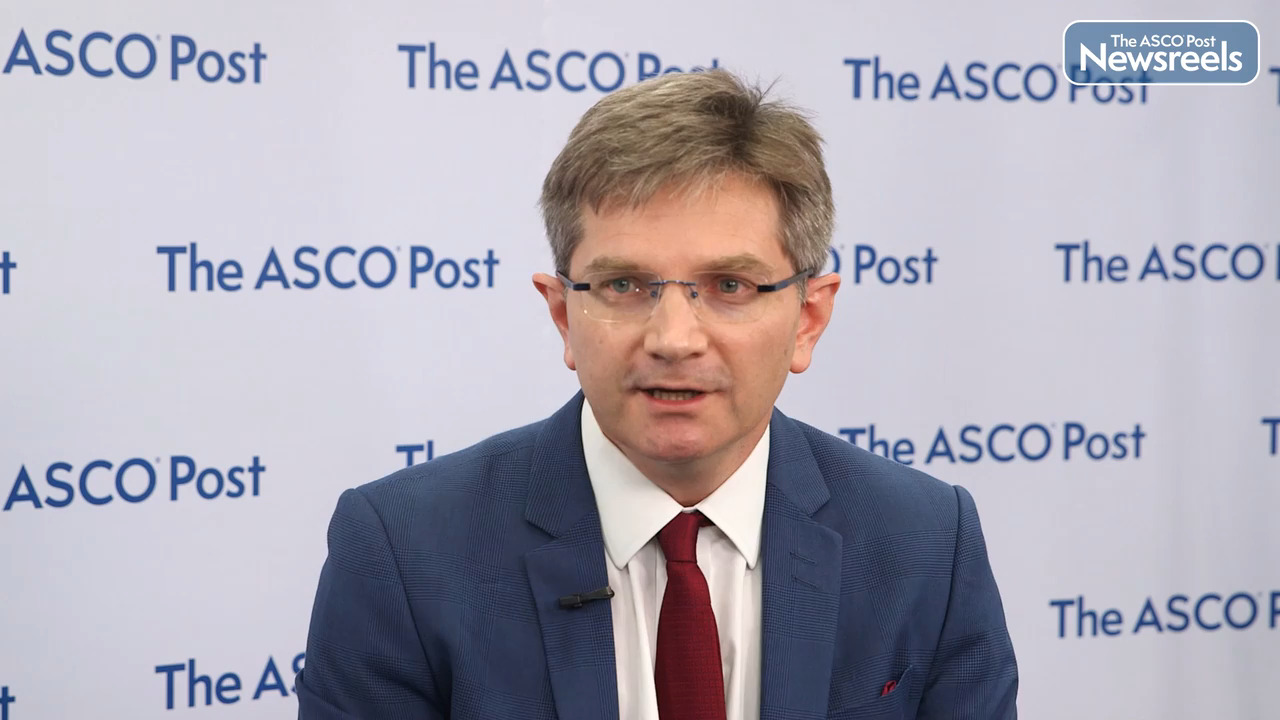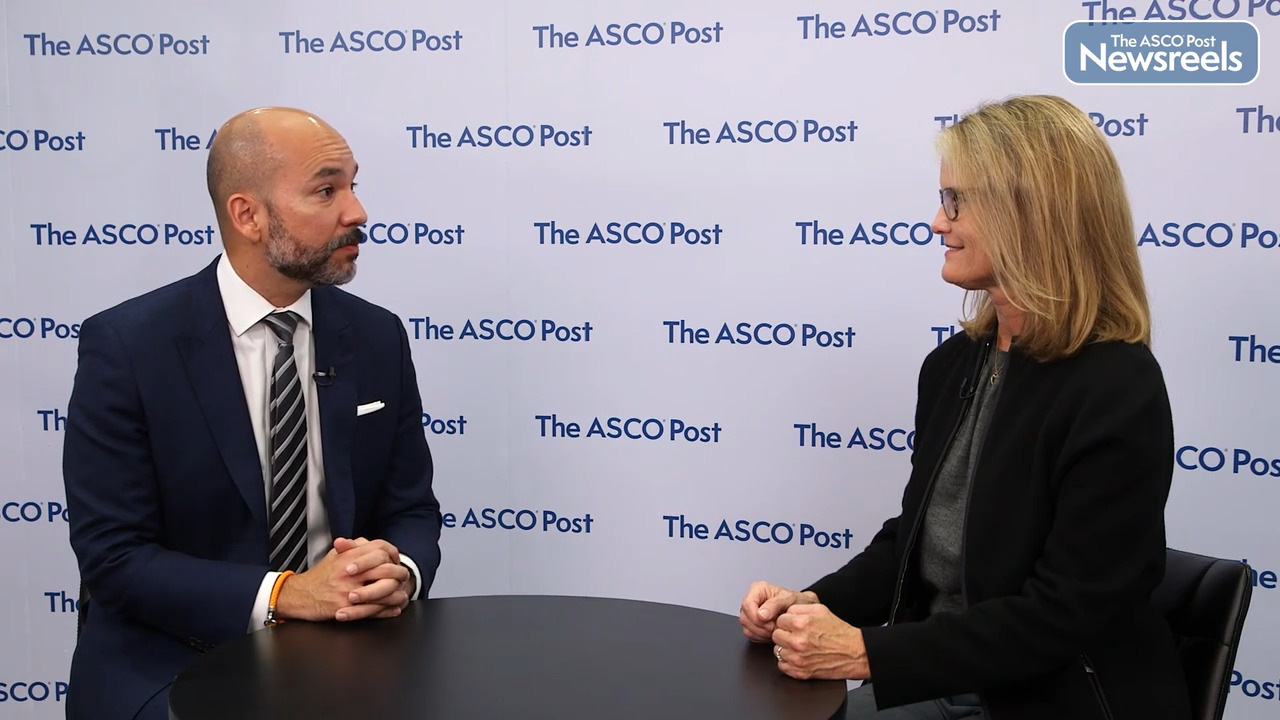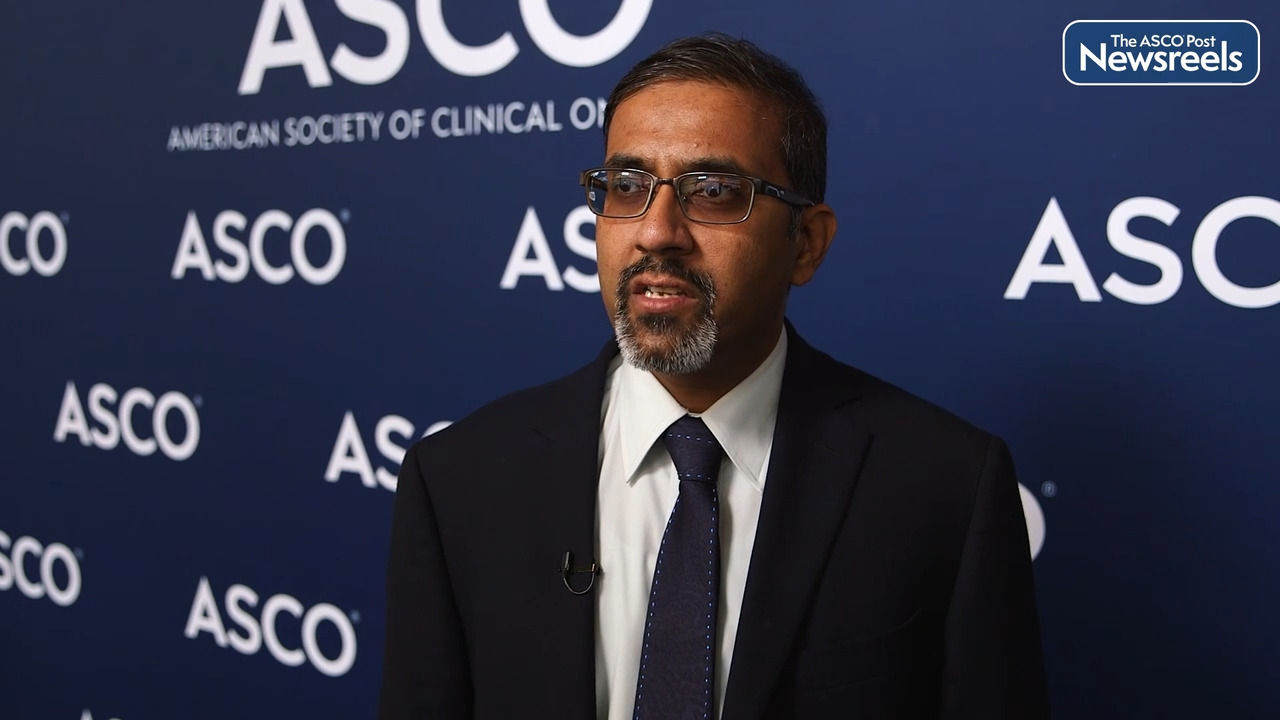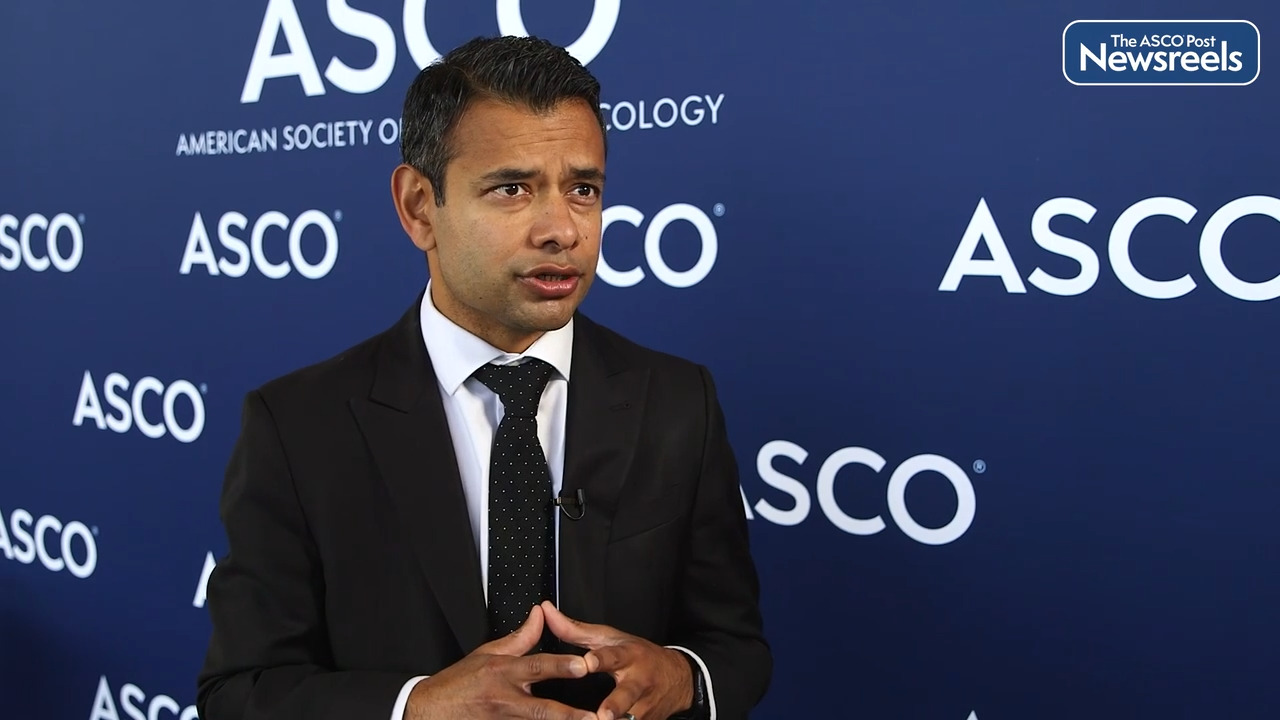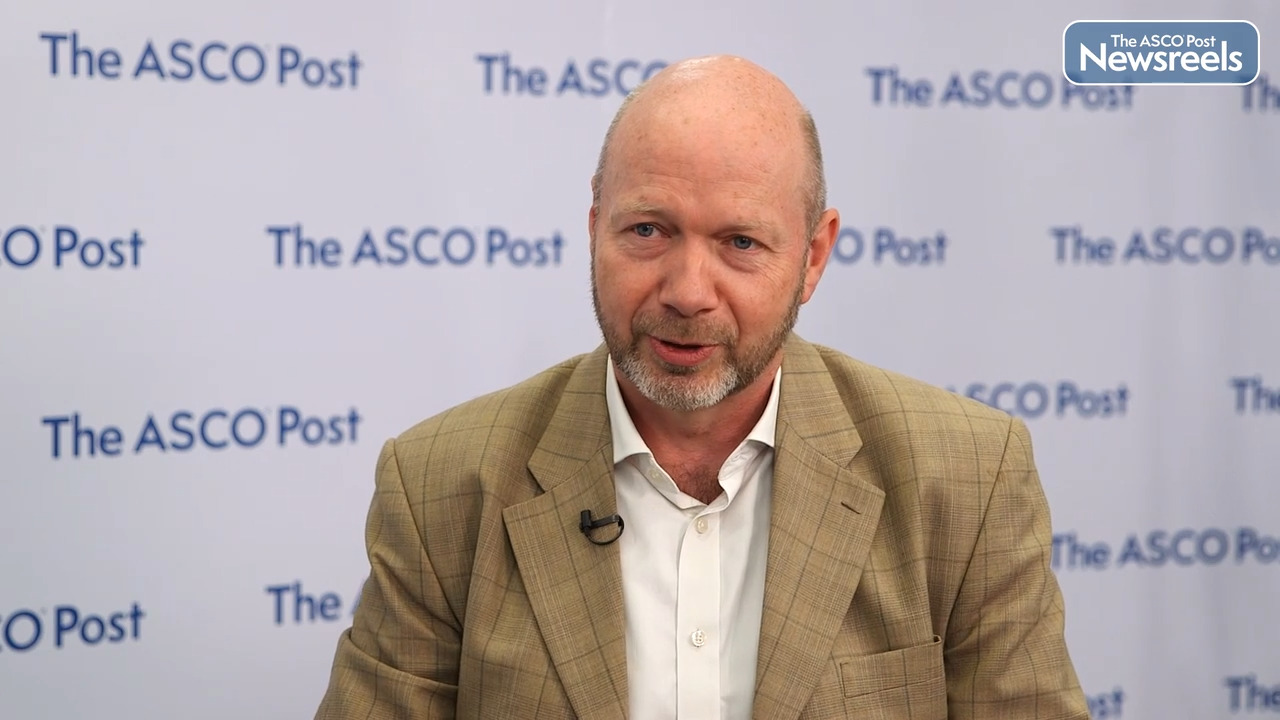Georgina V. Long, MD, PhD, on Melanoma: Distant Metastasis–Free Survival With Adjuvant Pembrolizumab
2022 ASCO Annual Meeting
Georgina V. Long, MD, PhD, of the Melanoma Institute Australia, The University of Sydney, discusses phase III findings from the KEYNOTE-716 study. The trial showed that compared with placebo, adjuvant pembrolizumab significantly improved distant metastasis–free survival in patients with resected stage IIB and IIC melanoma. The findings also suggest a continued reduction in the risk of recurrence and a favorable benefit-risk profile (Abstract LBA9500).
Transcript
Disclaimer: This video transcript has not been proofread or edited and may contain errors.
Keynote 716 is a phase three randomized trial of adjuvant pembrolizumab versus placebo in resected stage 2B and 2C melanoma. Historically from retrospective studies, stage 2B and C melanoma has been thought to be not as high risk as it actually is. In fact, many patients recur at 24 months and beyond, and these patients have very poor outcomes. So I'm reporting the distant metastasis free survival from this trial. We've previously reported on the relapse free survival on two previous analyses. And what we see is pembrolizumab significantly improves the distant metastasis free survival compared with placebo with a hazard ratio of 0.64, this represents a 36% reduction in the risk of recurrence, and a P value of 0.0029. This is highly significant. We also see on the 24 month and the 12 month landmark distant metastasis free survival rates, a significant increase compared with placebo of pembrolizumab. What's more in this study when we look at the subgroups, key subgroups, every subgroup favors pembrolizumab compared with placebo for the distant metastasis free survival, including the T subcategories 3B, 4A and 4B, as well as the US geographical region. We also see a sustained improvement in the relapse free survival. So at this analysis, this is the third analysis for the relapse free survival. It was the first for distant metastasis free survival. We see a hazard ratio of 0.64 and continued separation of the Kaplan-Meier curves for the relapse-free survival, meaning that adjuvant pembrolizumab significantly decreases the risk of recurrence for patients with resected stage 2B and 2C melanoma. So what are the next steps? The next steps are that we will continue to follow up with this trial and look at the overall survival benefit. In the design of this trial, we had crossover at recurrence. So patients were initially randomized to placebo versus pembrolizumab. But if they recurred, they were unblinded. If they were on the placebo arm or on the pembrolizumab arm, and they had their last dose of pembrolizumab six months or further prior, they were eligible to cross over to pembrolizumab. So we'll also be watching for the overall survival in the coming years. The take home message is that adjuvant pembrolizumab significantly improves both the relapse free survival and the distant metastasis free survival, and should be considered for patients with resected stage 2B and 2C melanoma.
The ASCO Post Staff
Benoit You, MD, PhD, of Lyon University hospital (HCL, France) and GINECO group (France), discusses findings from the GOG-0218 trial of patients with ovarian cancer, which appears to confirm earlier data on the link between poor tumor chemosensitivity and benefit from concurrent plus maintenance bevacizumab. In Dr. You’s validation study, patients who derived the most progression-free and overall survival benefit from bevacizumab were those with high-risk disease (stage IV or incompletely resected stage III) associated with an unfavorable KELIM score (CA-125 kinetic elimination rate constant, calculable online) (Abstract 5553).
The ASCO Post Staff
Gilberto de Lima Lopes, Jr, MD, MBA, of the Sylvester Comprehensive Cancer Center at the University of Miami, and Karen L. Reckamp, MD, of Cedars-Sinai Medical Center, discuss phase II findings from substudy S1800A of the Lung-MAP protocol. The data showed that ramucirumab and pembrolizumab improved overall survival compared with the standard of care for patients with advanced non–small cell lung cancer who were previously treated with immunotherapy and platinum-based chemotherapy (Abstract 9004).
The ASCO Post Staff
Apar Kishor Ganti, MD, of the University of Nebraska Medical Center, discusses results from the CALGB 30610 study, which showed a similar clinical benefit for once- and twice-daily radiotherapy administered to patients with limited-stage small cell lung cancer. While both regimens were well tolerated, patients who received radiotherapy once daily had better quality-of-life scores at week 3 and slightly worse scores at week 12. Patients believed the once-daily regimen was more convenient (Abstract 8504).
The ASCO Post Staff
Sumanta K. Pal, MD, of City of Hope National Medical Center, discusses findings from the COSMIC-021 study, which showed that cabozantinib plus atezolizumab demonstrated encouraging clinical activity with manageable toxicity in patients with inoperable locally advanced or metastatic urothelial carcinoma. The combination was administered as first-line therapy in cisplatin-based chemotherapy–eligible and –ineligible patients and as second- or later-line treatment in those who received prior immune checkpoint inhibitors (Abstract 4504).
The ASCO Post Staff
Martin McCabe, PhD, of the University of Manchester, discusses a phase III assessment of chemotherapy for patients with recurrent and primary refractory Ewing sarcoma. The trial, called rEECur, is the first study to provide comparative toxicity and survival data for the four most commonly used chemotherapy regimens in this disease. The analysis showed that high-dose ifosfamide is more effective in prolonging survival than topotecan plus cyclophosphamide (Abstract LBA2).
